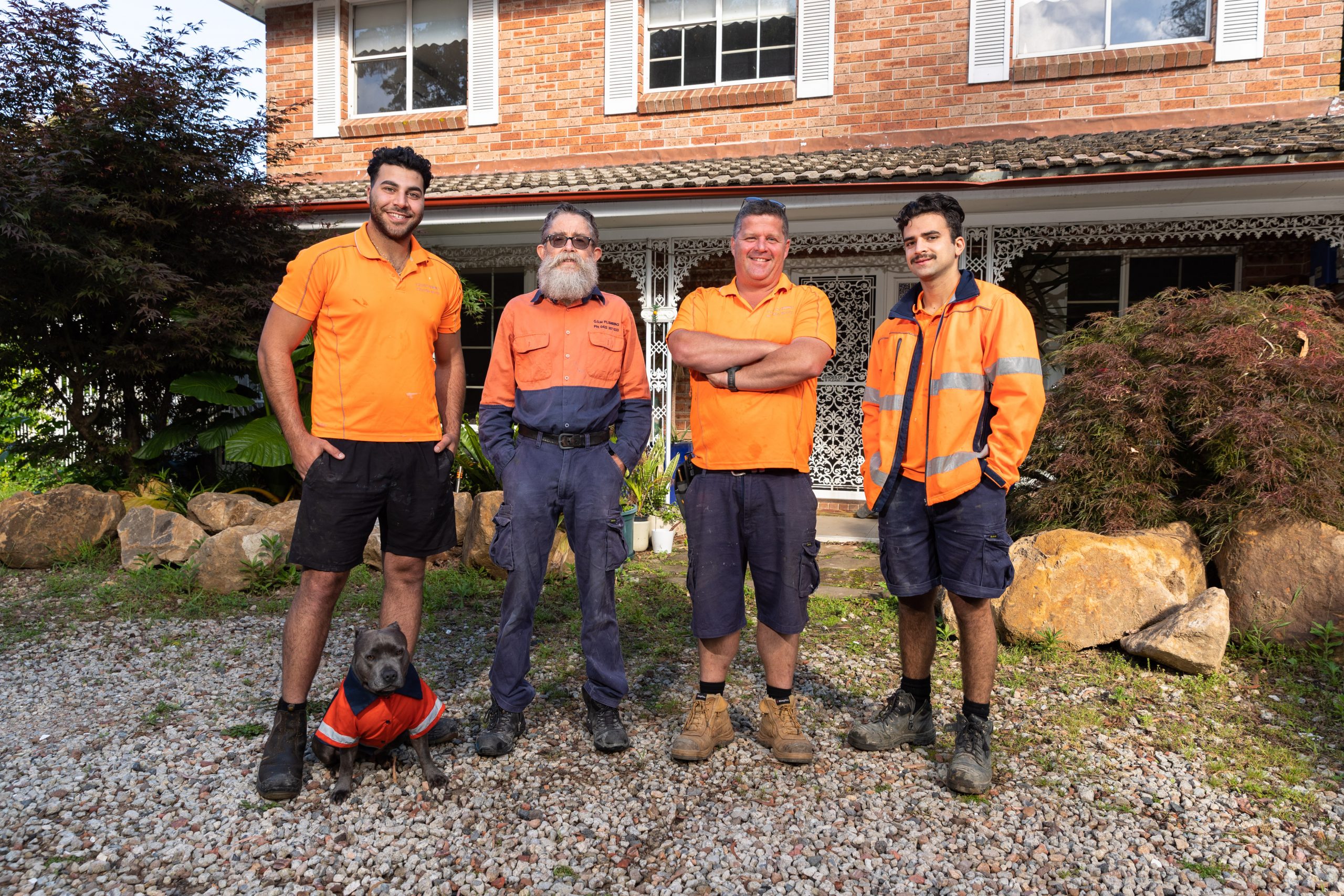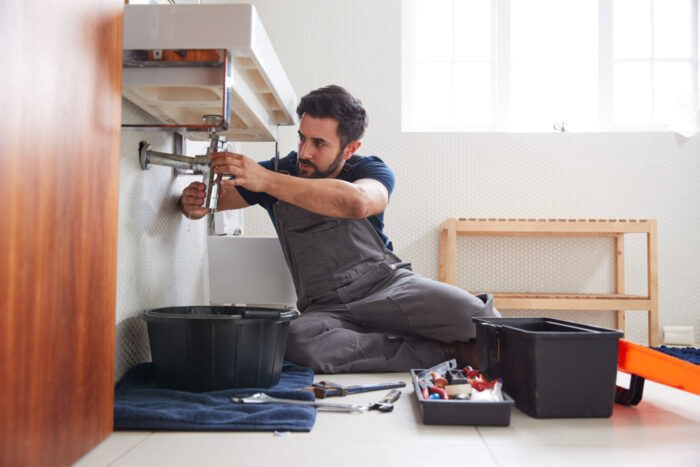Beneath our feet and within the walls of our homes and offices are vast networks of pipes that supply our water and gas needs. Pipes also carry dirty water away from the house and allow sewer gases to be vented outdoors. Other pipes like stormwater systems are designed to direct water flow from your property and into local water bodies.
Knowing the different types can help you identify those you may need during a renovation, home extension, home build or general repair. And with better knowledge of your home’s plumbing, you’ll be able to explain a pipe problem when calling your local plumber. This will give them an idea of what materials to bring to resolve the issue.
Some of the most common household or workplace pipes include:
- Hot and cold water pipes
- Under sink pipes
- Gas pipes
- Water supply line
- Downpipes
- Waste pipes
- Drainage pipes
- Recycled water pipes
If you’ve ever wondered how plumbing systems work, this article is for you as we take a closer look at what goes on.
Plumbing Pipes Inside a Building
A building’s plumbing network comprises two basic systems: one to bring in fresh water and the other to take out wastewater. The two are connected by taps, showers, sinks, toilets, washing machines and dishwashers. The main internal plumbing pipes are:
Hot and Cold Water Pipes
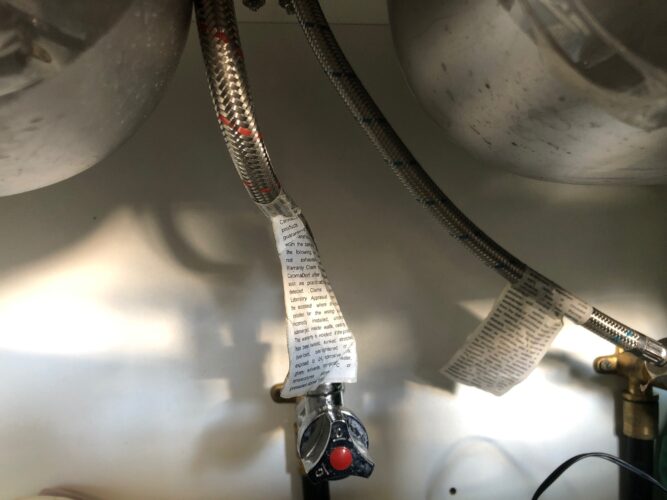
Once water enters a building, it passes through a meter to register how much is used and is then divided into hot and cold water systems. Coldwater flows immediately to every fixture in a building, such as showers, taps and toilets. For hot water, the main line carries water to the water heater. From here, hot water pipes send the heated water to all the fixtures and appliances that need it. To minimise heat loss, these pipes are insulated.
Wastewater Drains
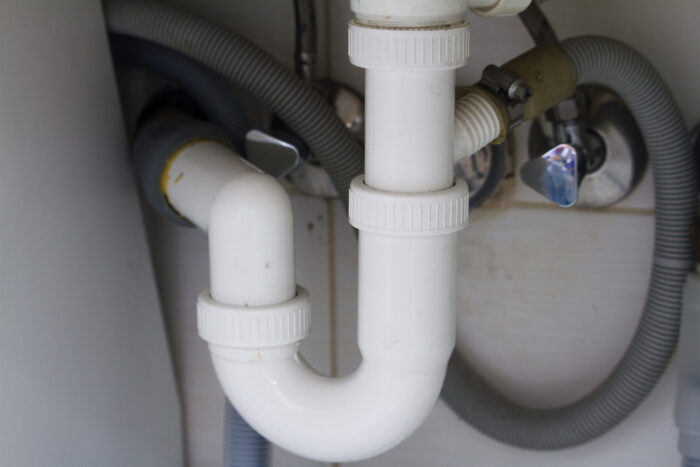
These are drain lines that allow wastewater to pass through. The bend in the pipes is called a trap which retains some water and prevents foul-smelling and potentially hazardous gases from entering a room.
Gas Pipes
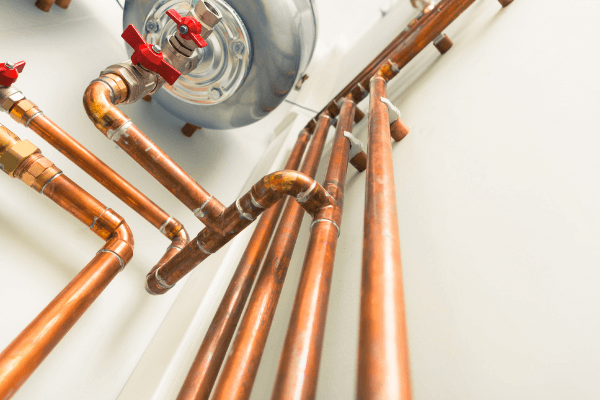
Natural gas or LPG pipes convey liquefied petroleum gas or natural gas to specific gas-powered appliances. Only a licensed gas plumber can repair or install these types of pipes.
Plumbing Pipes Outside a Building
Outside a home or building, you will generally find a range of different pipes to bring water into the property and direct it out. Some of the main outside pipes include:
Water Supply Line
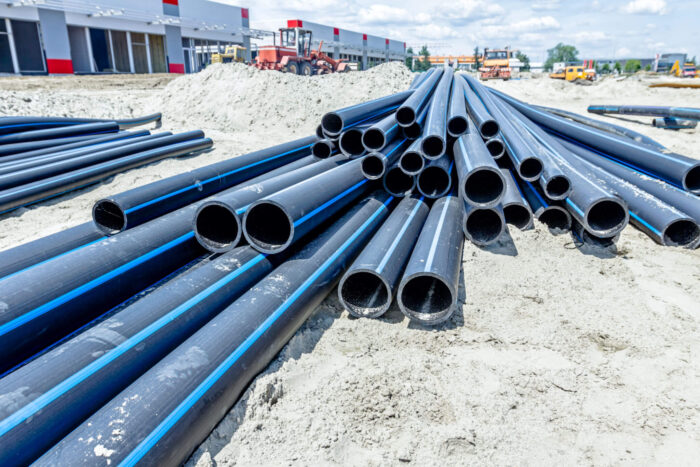
Clean water enters a building through one pipe, the water supply line. Potable water is supplied through the city’s main drinking water network.
Downpipes
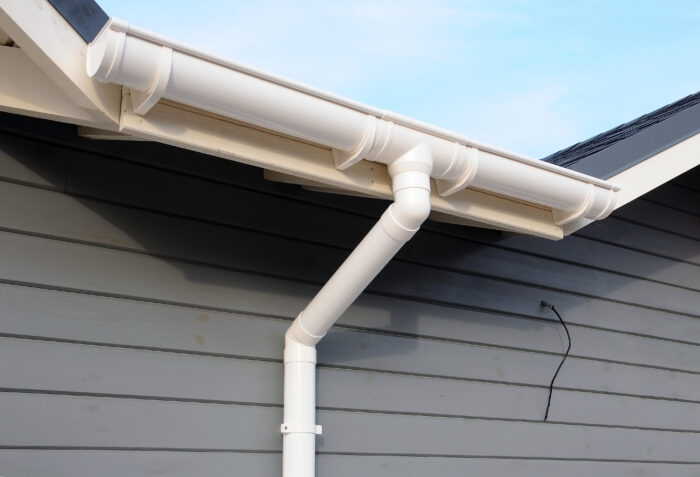
Downpipes carry rainwater from gutters into the building’s rainwater tank (if it has one) or the stormwater system.
Waste or Sewer Pipes
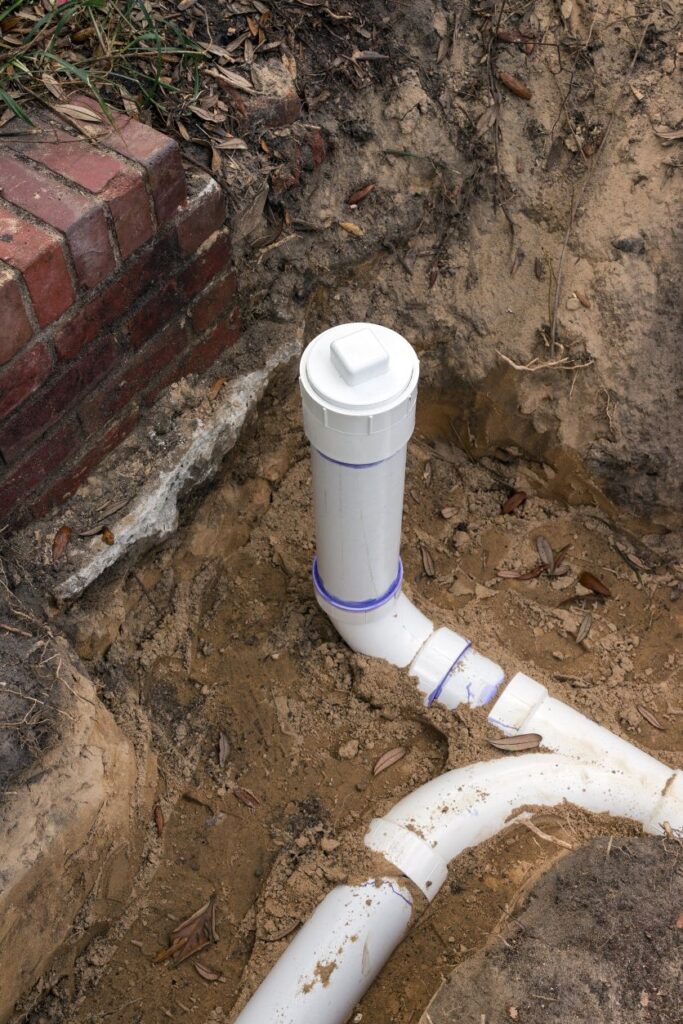
Sewer pipes carry wastewater from the waste outlet of a fixture to a local sewer line on your street. Newer pipes are white PVC, while those laid before the 1960s may be cast iron, copper or clay.
Stormwater Drainage Pipes
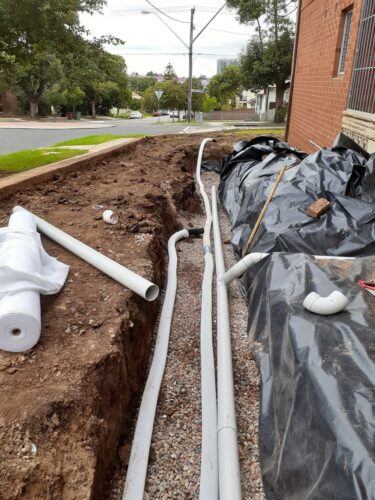
Along with overland flow paths, gutters and drains, drainage pipes carry stormwater runoff to the town stormwater system. Sometimes, this includes an onsite detention (OSD) system, which has a slow-release valve that lets the water slowly drain.
Recycled Water Pipes
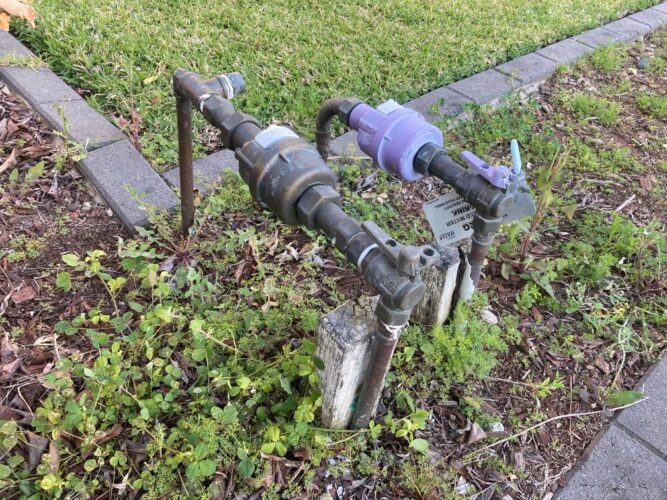
In some areas, runoff water is collected, treated and supplied back to residents as recycled water. Recycled water has many uses, such as irrigation, watering lawns, and flushing toilets.
Where are Plumbing Pipes Located?
Once the water is inside a building, it runs through a labyrinth of pipes that travel across rooms, upstairs and around corners to deliver water wherever it’s needed. Most pipes cannot be seen; they’re hidden between walls, under the flooring and underground.
Kitchen: a lot of the plumbing is located under the sink, including waste and supply pipes to and from a washing machine.
Bathroom: Bathtub plumbing tends to be hidden under the tub while pipes to the shower are hidden in the wall. The drainpipe in the shower base extends into the floor. Vanity units often obscure sink plumbing.
Walls and floors: When houses are built, plumbers lay pipes out of sight in walls and floors.
What are Plumbing Pipes Made From?
The pipes used in your home or workplace can be made from a variety of materials. Water pipes are usually made of copper, a metal that resists corrosion very well and contains properties that inhibit bacterial growth. Older properties built before the 1960s may have dull silver galvanised iron water pipes that are reaching the end of their life.
Stormwater, sewer and drainage pipes are PVC, recycled water pipes can be copper or PEX, while wastewater pipes can be made from various materials. In a modern home, these pipes are often made from plastic. In homes built before the 1980s, terracotta and clay pipes were the standard. Although these materials are durable, they become brittle with time, and cracks can appear at the joints. Gas pipes are either copper, galvanised steel, nylon or a PEX-AL-PE composite.
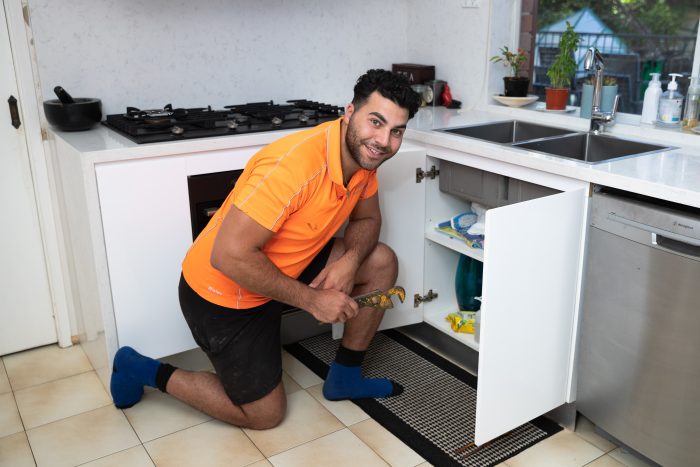
Contact GSM Plumbing for all your Plumbing and Gas Repair Needs
Our residential, industrial and commercial pipe plumbing systems are genuinely modern marvels that we cannot live without. But no matter how hardwearing the pipes or how well a plumbing system has been installed, problems will occur. If you ever run into any gas or water pipe plumbing issues, call GSM Plumbing, your reliable 24-hour emergency plumber in The Hills.
We offer a wide range of plumbing services to homes and businesses. Our plumbing experts have the knowledge, skills, training and experience to solve any plumbing problem.


